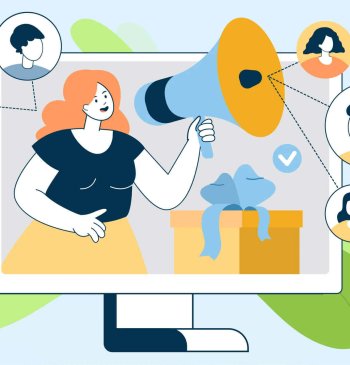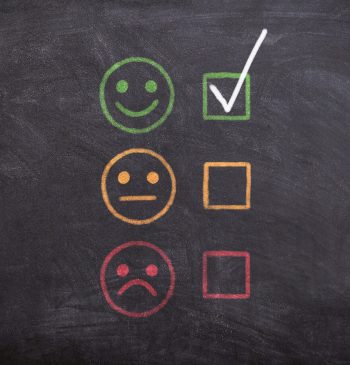29 May

The digital transformation brought a breakthrough that influenced today’s businesses. “Commerce” evolved to “eCommerce,” which entailed the transformation of manual operations within fields of commerce through online procedures. Digitalizing each of these operations and shifting business to online platforms have been possible thanks to various software. In the B2B eCommerce transition context, it was also possible to do so by platforms designed especially for managing the B2B ecosystem. The B2B eCommerce transition could happen based on that.
The first spark was the idea that expanding a simple online buying experience and reflecting on a broader context in the B2B eCommerce transition is possible for future platforms. As easy as it may sound, it is a chain of transformations to shape a larger, more complex whole.
What are the B2B eCommerce transition elements to transform first?
As further episodes of digital transformation unfold, the following emerged as the first elements to transform first in any business:
- Automating business operations across your channel
- Presenting your brand, in other words, brand education
- Relationships within your channel and without
Today, a wide range of software successfully covers the first element. Companies found it easier to leave it to their decision-makers who approach the issue with IT knowledge.
However, the other two have more multifaceted natures. Therefore, they require different and indirect approaches with special care for relationships within B2B eCommerce transition. As many of our followers would notice, we’ve covered the relationship complexity in B2B environments several times in our blog. It’s not only a core component of the very nature of B2B but also directly linked to the engagement concept.
As developers of Apex Loyalty, we welcome the technical approach for B2B eCommerce procedures first to make sense in the latter part. So, firstly, let’s take a look at how companies make the B2B eCommerce transition happen today.
Merging CRM and B2B eCommerce
Customer relationship management (CRM) and business-to-business (B2B) are two crucial components of modern marketing. If we can integrate them on a platform, all actors behind your business processes can benefit from this. Today, eCommerce platforms are the merging platform for this need, empowering sales, marketing, service, and many other departments. With the launch of B2B eCommerce transition based on modern CRM, companies discovered a much easier means to handle and direct operations.
B2B eCommerce software covers tools for dealing with major functions that must be addressed daily in a B2B eCommerce transition. For instance, products for eCommerce on Salesforce focused on the following emerged as major segments: Boosting revenue, scaling your business, industry-specific customization, and in-depth engagement. Realizing these fundamentals produce more returns than simply eliminating manual tasks of B2B eCommerce. How?
Automation Makes Room for Growth
Implementing automation has become a pivotal element for companies looking to expand and evolve in the modern business landscape. At its core, automation is about enhancing efficiency and reliability in various business processes. It’s about replacing manual labor with machines and creating a more dynamic, responsive, and scalable operation. By integrating automation into the B2B eCommerce transition, businesses can unlock new levels of growth and development. This transformative approach opens doors to numerous possibilities, each contributing significantly to a business’s overall growth and sustainability. Let’s tackle each item one by one:
- Boosting Revenue
- Scaling Your Business
- Industry-specific Customization
- In-depth Engagement
Boosting Revenue
Insights from users and brands show the key is simplicity and applying the feel of “self-service” to online multi-purchasing. Therefore, imitating a consumer-like shopping experience regarding the transactions within a channel may provide a smooth experience for B2B partners. Daily tasks across the B2B environment vary for the channel manager.
For instance, if you are a retailer, you must meet the needs of your distribution or wholesale partners and employees. This varies from restocking your shelves to online ordering functions that enable partners to order replacement parts, etc. For your party, you need features compatible with B2B dynamics for achieving fast reorders, account hierarchies, contract pricing, custom catalogs, and more. B2B eCommerce transitions are in high demand today because of their multi-response ability to address these all.
Scaling Your Business
By eliminating the above-mentioned manual work, you will have time and energy to focus on launching new products and generating more revenue. To achieve this, you need to see where you are standing and your performance in measurable units. This will also clear your horizon, providing crystal clear forecasts.
Once you can measure your activities, you can reduce costs and reallocate resources. Imagine doing it with all your partners as a whole body focusing on the same objectives. You can reallocate time and money immensely by empowering your allies with self-service tools and walking them through guided experiences.
Industry-specific Customization
Your unified and account-based structure, including ordering, pricing, stock-taking, etc., functions are possible due to the power of CRM integration. This encompasses the entire chain — from manufacturing to the end buyer — with a seamless online experience across all touchpoints. Gaining such freedom will provide you with more room for getting creative in engagement activities.
Being more aware and responsive in ad hoc situations and ever-changing needs will make you a better channel manager. This way, you’ll also be able to encourage your partners, steering a whole ecosystem towards digital-like B2B eCommerce.
In-depth Engagement
Connecting customer data to the overall endeavors through your CRM was the foremost and crucial step. Gaining a multidimensional view of customer activity across all your departments and parties was exceptional. Reaching this was hard work but worth it. It’s time to maintain this, stay connected, and be in harmony while staying up-to-date.
B2B eCommerce platforms help you build customer loyalty faster and will be more fruitful than you think. It will help you deploy the new way of doing B2B eCommerce transition in weeks instead of years. Resistance to technology within a business context is a thing, and new eCommerce dynamics effectively fight this challenge.
Reinforcing the User Experience with Apex Loyalty Elements
One of the driving powers behind Apex Loyalty is the group of professionals from various backgrounds. We know your needs, conflicts, and the hardships you constantly go through. We developed Apex Loyalty’s core structure with an awareness of the industry dynamics and B2B eCommerce environment combined. It’s no coincidence that our framework bears a high resemblance with any B2B eCommerce platform that is mentioned in this post. You may think of our services as another layer that reinforces and amplifies the engagement parameter in your commerce platform.
Embracing the very same principles, Apex Loyalty becomes your catalyst. It also serves as an effective communicative tool in supporting your partners as they go digital. The feelings of familiarity that Apex Loyalty provides will render your B2B eCommerce transition experience personal and empower your presence in all domains.
You can read our previous article from https://www.apexloyalty.com/b2b-engagement-ideas/











